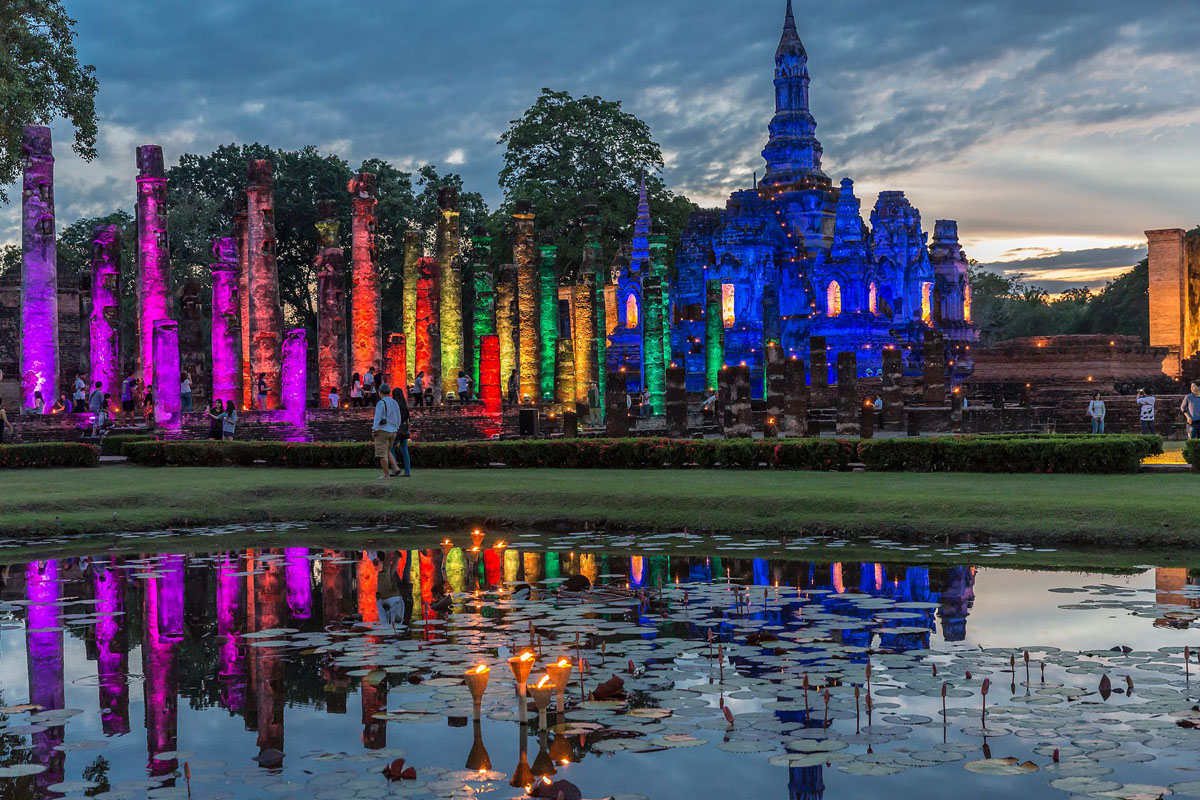 Thailand’s ancient capital, established in the early 13th century, Sukhothai is located 427km north of Bangkok, and literally means “Dawn of Happiness.” For 120 years Sukhothai was ruled by many kings, the most famous being King Ramkhamhaeng the Great, who created the Thai alphabet and laid the foundation for politics, monarchy and religion.
Thailand’s ancient capital, established in the early 13th century, Sukhothai is located 427km north of Bangkok, and literally means “Dawn of Happiness.” For 120 years Sukhothai was ruled by many kings, the most famous being King Ramkhamhaeng the Great, who created the Thai alphabet and laid the foundation for politics, monarchy and religion.
Here are 10 reasons to visit and 10 things to do in Sukhothai.
1. Sukhothai Historical Park.
In Sukhothai’s golden era, this city was the centre of south-east Asia and the ruins from that glorious time have been declared a UNESCO World Heritage site. The park is home to ruins of royal palaces, Buddhist temples, historical monuments and the remains of ancient moats, walls, and city gates. A significant feature of the complex is Wat Maha That. Inside this temple is a grand pagoda surrounded by another 8 pagodas in the shape of a lotus, and at the front gate, a giant Buddha statue called Phra Atha Ros.
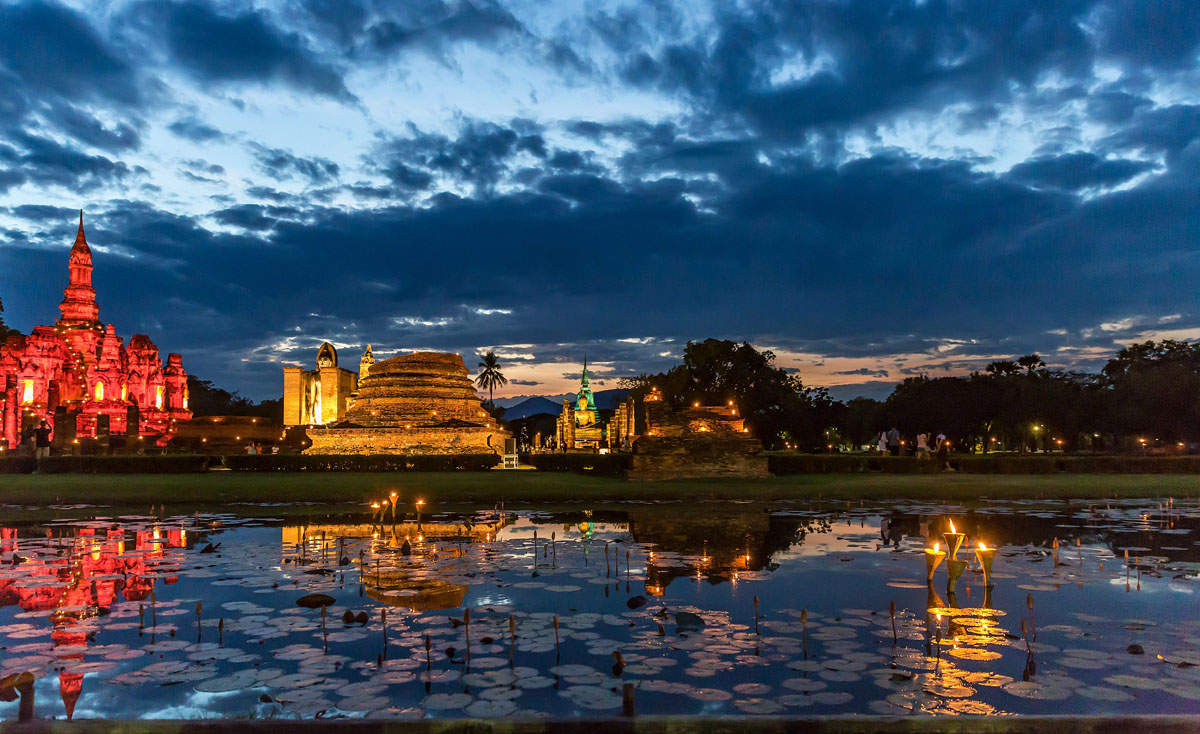
2. Ban Na Ton Chan Homestay
This homestay is located in Tambon Ban Tuek, Amphoe Si Satchanalai. Here you can experience the villagers’ way of life and their crafts. Khit cloth weaving in the ancient ‘Dok Phikun’ floral pattern, mud-soaked cloth making, basketry, wooden toys, and furniture made from tree roots and stumps. Visit the stray elephant nursing centre and seasonal fruit orchards.

3. Wat Si Chum.
This temple houses a large monumental stucco Buddha image in the attitude of subduing Mara called “Phra Atchana”, which is 11.3m in width. The roof has already disintegrated, exposing just four walls of stuccoed bricks. In the days of the Phra Ruang Dynasty, to boost morale of the ancient soldiers, monks walked through a hidden passageway and addressed people through a hole, making them believe the voice they were hearing was actually the Buddha.
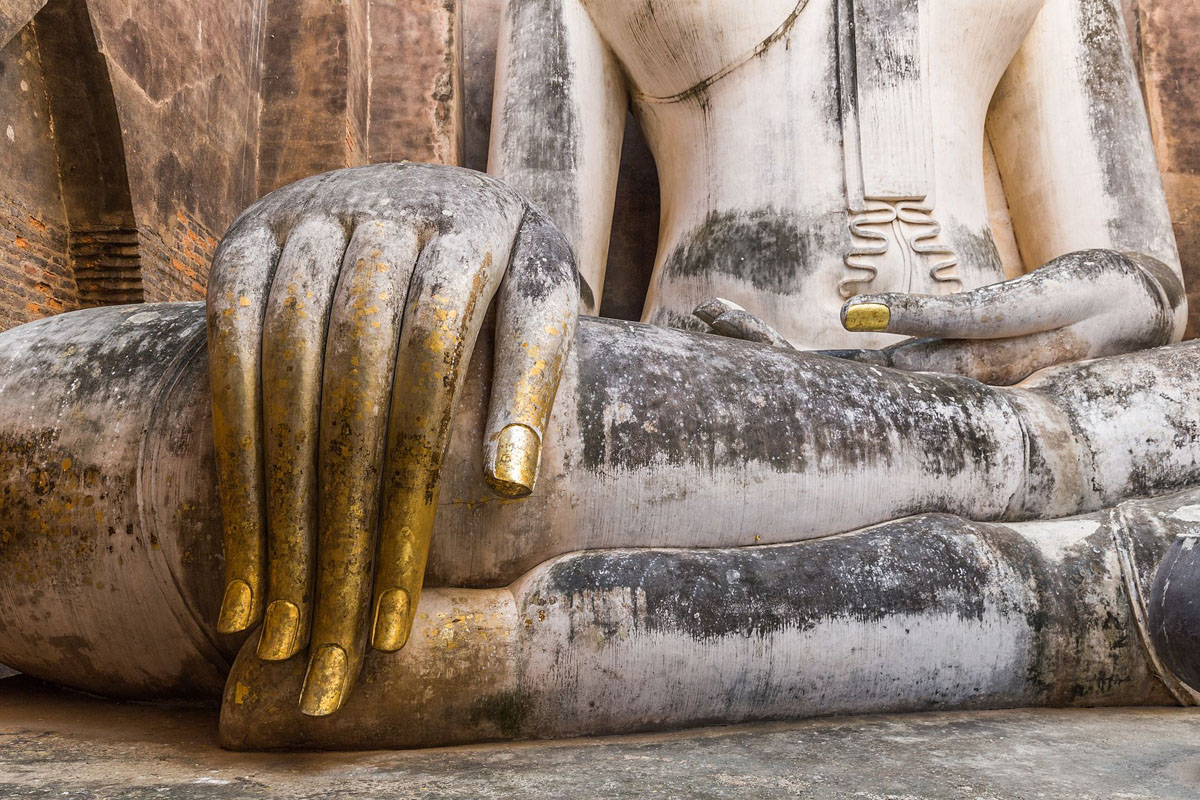
4. Si Satchanalai Historical Park.
A visit to Sukhothai wouldn’t complete without a visit to the historical site of the ancient Si Satchanalai City, the second largest city after Sukhothai during its golden days. The park is home to ruins of palaces, temples and domestic dwellings. Main attractions include Wat Phra Si Mahathat, Wat Chang Lom and Wat Chedi Jet Taew, all of which feature authentic Sukhothai architectural style.
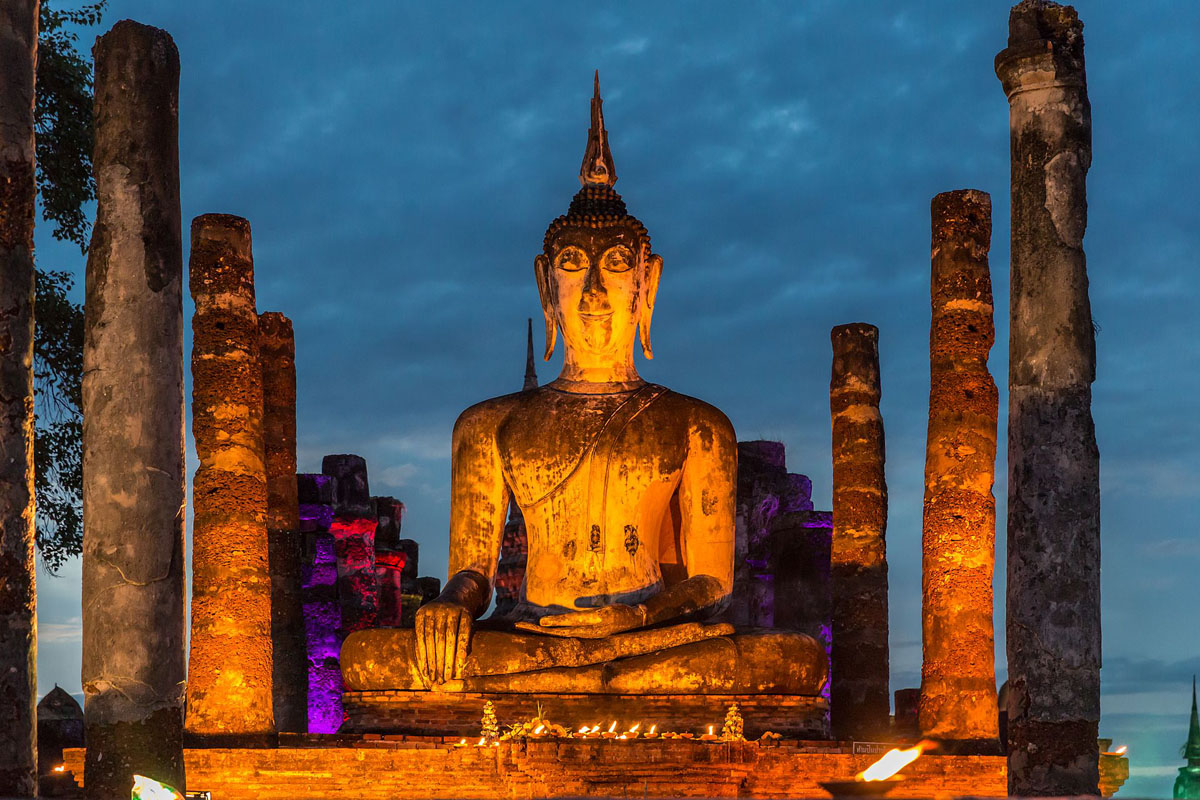
5. Cycling in Sukhothai Historical Park.
One of the best ways to explore this archaeological site is by bicycle. There is a rental bike service in front of the Historical Park.
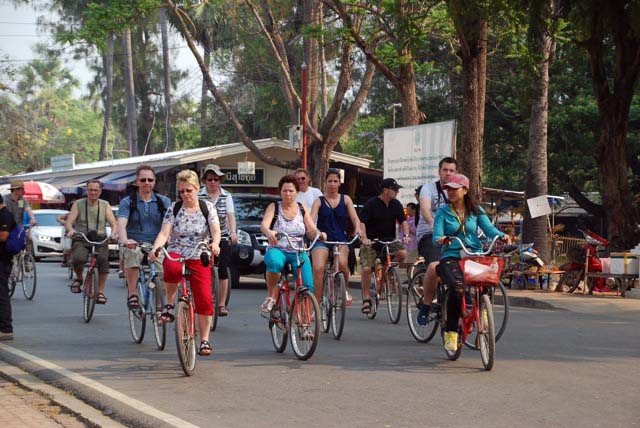
6. Loi Krathong and Candle Festival.
Sukhothai’s Loi Krathong is held annually on the full moon night of the 12th lunar month at the Sukhothai Historical Park. Activities during the festival include krathong or banana-leaf cup floating, a fireworks display, local games, processions, and traditional performances that reflect the lifestyle of the people as described in the stone inscription, as well as, a light and sound presentation.
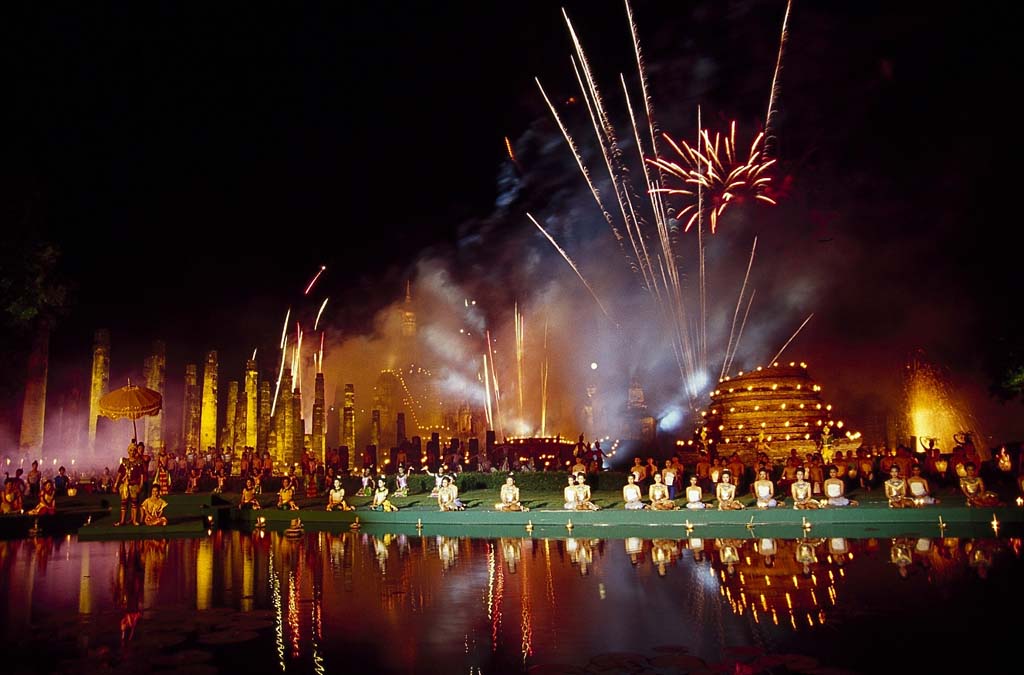
7. Sangkhalok Museum.
This private museum houses the most comprehensive collection of Sangkalok porcelains, a type of porcelain produced during the Sukhothai kingdom.

8. King Ramkhamhaeng, The Great Momument.
This attraction tells the story of Sukhothai through models of historical buildings and structures, best explored by tram or bicycle.
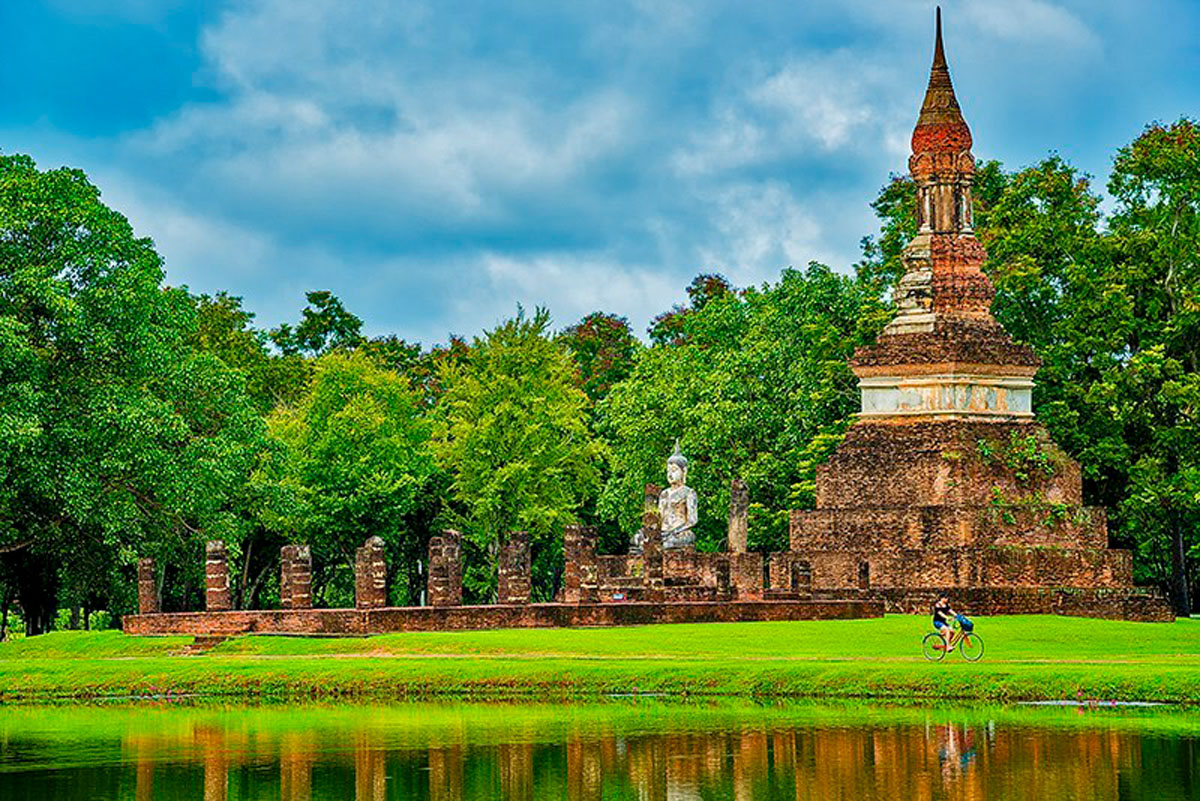
9. Ramkhamhaeng National Park (Khao Luang).
At 1200m above the sea level, this national park is great for nature lovers, with lush green mountainous landscapes, beautiful waterfalls and plenty of wildlife. It’s also home to several archaeological sites where several ancient tools and relics have been found, popular for historians and theologians.
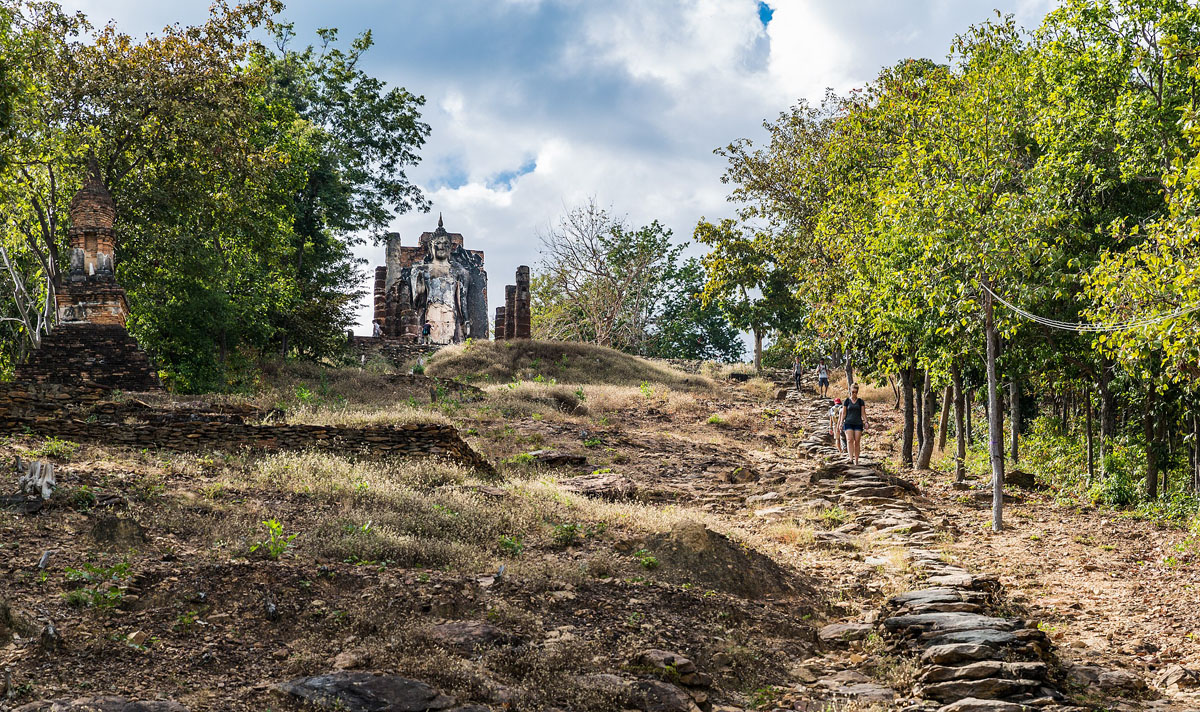
10. Sathorn Golden Textile Museum.
The impressive Sathorn Golden Textile Museum is owned by a retired textile broker, Sathorn Sorajprasobsanti. Many of the fabrics here were made in Ban Had Saew Village where the Tai Puan people built their community during the reign of Rama II, and were renowned for their hand-woven textiles.
